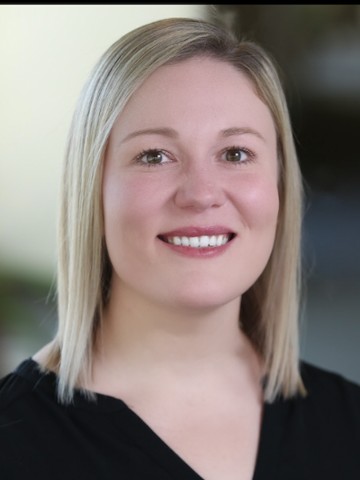The Health and Clinical Outcomes Research, Student Spotlight Series: Amanda Meiklejohn, M.P.H., Ph.D. (’25)
Amanda Meiklejohn, M.P.H. ,is a fourth-year student in the health outcomes research Ph.D. program in the Saint Louis University School of Medicine.

Meiklejohn recently shared some of her experiences, real world implications of her research and advice for aspiring Ph.D. students.
What inspired you to pursue a health outcomes research Ph.D. and how does it align with your career goals?
For as long as I can remember, health outcomes and clinical research have instilled a sense of curiosity and fascination. Whether it was watching how a chemical combination cured my grandmother’s breast cancer or allowed me to breathe that next breath after a frightening allergic reaction, my infatuation with what medication can and will do for our population is constantly running through my mind.
Achieving a Ph.D. in health outcomes perfectly complements my career aspirations, equipping me with the expertise to analyze and design clinical trials.
What skills or knowledge have you gained that you believe will benefit your future career?
Through the Ph.D. program, I gained the skills to accurately assess, analyze, and report biostatistical findings, enabling me to better serve the public. I was able to examine variables within populations to determine whether it was the medication, demographics, environment, or other unexplored factors that contributed to COVID-19 vaccine hesitancy. Additionally, the program provided me with a more holistic understanding of population health.
Can you share a memorable experience or project from your time in the program?
During my first semester, I enrolled in "Health Outcomes Measurement," where I gained the chance to delve into creating a scale to measure COVID-19 vaccine hesitancy. The practicality of our work caught the attention of the professor, who approached my partner and me about the possibility of publishing our findings. This experience opened my eyes to the impactful potential of classroom projects for the broader community.
How do you envision applying what you've learned in the program to make an impact in your field?
I anticipate integrating the knowledge gained from the Ph.D. program into both my current and future positions. Currently employed in the pharmaceutical sector, where I specialize in clinical trial design and operations, I've come to appreciate the significance of orchestrating trials with the ultimate objective in sight. This encompasses considerations such as study design, patient demographics, data collection methods, statistical analysis and data presentation — a holistic understanding fostered by my doctoral studies.
How has the support and mentorship from faculty and peers influenced your academic and personal growth?
Before entering the Ph.D. program, I hadn't published any papers or presented at conferences or symposiums. However, with the mentorship and support provided by the department, I am not only encouraged but also pushed to disseminate my research. This experience gives me a profound sense of purpose and highlights the significance of my work, particularly concerning COVID-19 vaccine hesitancy.
What advice would you give to incoming students interested in this program?
Stay curious — make the most of office hours and explore available opportunities.
About the Health Outcomes Research, Ph.D.
Saint Louis University’s Doctor of Philosophy (Ph.D.) in Health Outcomes Research is a program that trains researchers in the areas of health outcomes research, health services research and health data science to meet the changing needs of the health care system.
About the Department of Health and Clinical Outcomes Research
The mission of the Department of Health and Clinical Outcomes Research is to serve as the collaborative bridge between divisions, departments, and colleges/schools across medicine and the health sciences to support methodologically rigorous research to solve complex health problems. The Department of Health and Clinical Outcomes Research is a scholarly community of faculty, staff and students committed to strengthening the delivery and outcomes of medical care through education and training programs, innovative research, and consulting services.